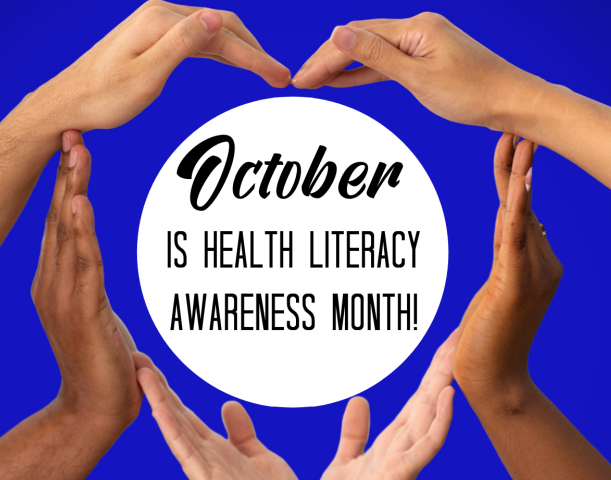October is Health Literacy Month – a time to integrate and expand the mission of health literacy. Together, we can build a world with greater health equity where all people can attain positive health outcomes. Visit healthliteracymonth.org today to learn how you can turn awareness into action!
What is health literacy?
Health literacy is defined as a person’s ability to find, understand, and use information and services to make health-related decisions for themselves and others.
Organizational health literacy is the degree to which organizations equitably enable individuals to find, understand, and use information and services to inform health-related decisions and actions for themselves and others.
Greater health literacy helps us overcome barriers and challenges that may result in harm. By collectively working to improve health literacy, we’ll create a more equitable world where everyone can access high-quality care and achieve positive health outcomes.
More Health Literacy Information:
Health Literacy and Health Equity: Connecting the Dots – News & Events | health.gov
Where Health Literacy Meets Inclusion | Blogs | CDC
Organizational Health Literacy Project at Thom
Thom Child & Family Services has invested in the development of an Organizational Health Literacy Assessment and Action Plan with Cathy Leslie, PhD, OTR/L, CEIS and Lindsay Rosenfeld, ScD, ScM. This work is evidence-based, and it is in direct alignment with targeted goals by the Office of Disease Prevention and Health Promotion/ U.S. Department of Health and Human Services initiative, Healthy People 2030. Each Thom program will participate in a training to bring awareness to this important topic and learn actionable ways to incorporate health literacy strategies into service delivery. After this, a needs assessment will be conducted to identify our strengths as well as areas in need of improvement. Once the assessment has been completed, we will create an action plan specific to our organizational needs. Check out this evidence-based resource that supports the importance of organizational health literacy.


